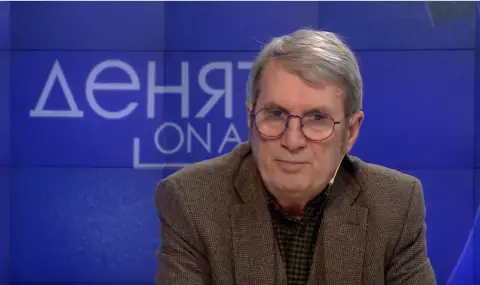New protest of healthcare workers.
"I don't know if everyone will resign, because some are better off. In the 12 psychiatric hospitals, the situation is certainly not rosy. But there are university hospitals, colleagues bring in good money and are unlikely to leave these places, especially since I have become convinced that the desire for reforms comes from the lowest levels. We are talking about a reform related to increasing salaries. For 25 years we have been talking about changes in the psychiatric system, about creating a modern psychiatric service that would return patients to the community, a system that would treat them adequately and create conditions for their dignified stay in psychiatric hospitals. But none of this is happening," said former Health Minister Prof. Hristo Hinkov in the studio of "Denyat ON AIR".
"We need a change in mentality"
According to him, there have always been other priorities and psychiatry has been at the bottom.
"The mentality of the Bulgarian is still: "The crazy ones in the asylum, not on the street". There have been such public statements. First, we must start with a change in mentality, including that of politicians. Those working in psychiatric hospitals do not have the opportunity for additional private practice. An attempt can be made to include psychiatry in the NHIF. I have no explanation why some of my colleagues refuse to talk about clinical pathways," added Prof. Hinkov on Bulgaria ON AIR.
A series of wrong political decisions He recalled that "pretty terrible things" are happening in psychiatry.
"There is no control, there is no standard to be followed. This is a series of wrong political decisions. One of them is the removal of accreditation for all hospitals, including psychiatry. Accreditation meant following a certain algorithm of behavior inside the ward, which is written in the Regulation. Work in the inpatient ward is one of the hardest. If urgent decisions are not made to increase salaries by 100% for everyone working in state health and psychiatric institutions, at some point there will be no one to work," the guest explained.
Prof. Hinkov commented that there is currently no talk of a shortage of medicines: "I don't know if there is a shortage or not. The problem with re-export has not been solved and this is a big problem on a European scale. This problem needs to be solved".
